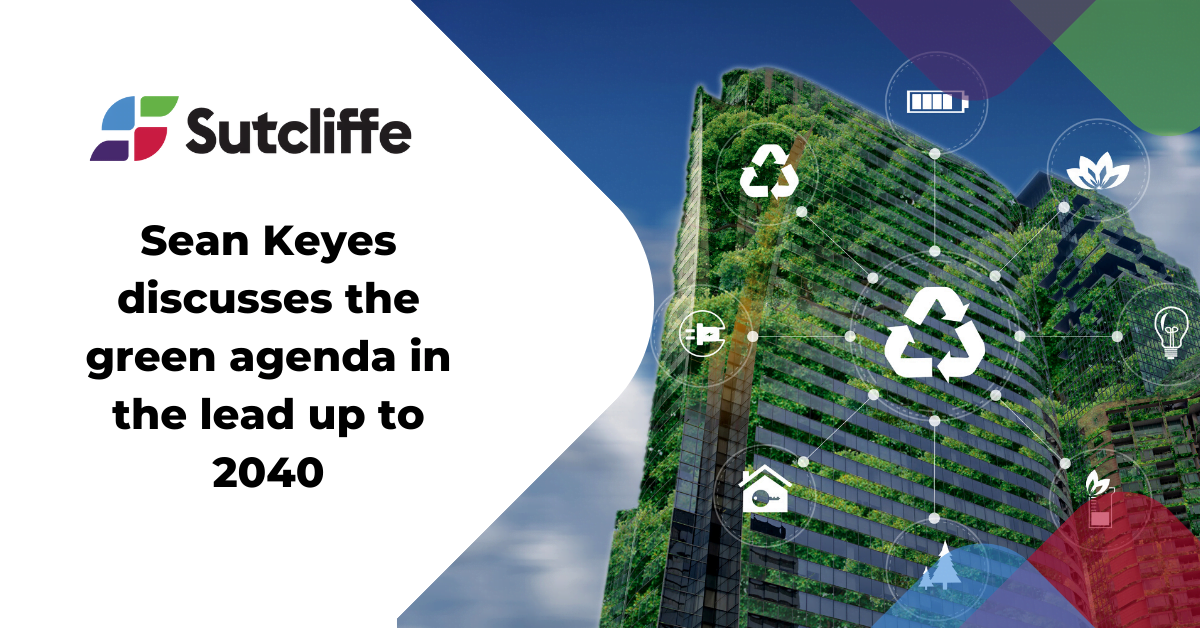
Reaching a net zero standard is something that’ll take years, rather than months. However, with the government’s green agenda making on-going commitments to achieve its goals by 2040, there is every hope that the construction sector and the nation will be in a very good position in just under a decade’s time.
The race to reach net zero by 2040 is one that is set to go down to the wire, but there is every hope tht not only will emissions be cut drastically, but in the process, new jobs, fresh opportunities and increased growth in the economy can come off the back of a greener world.
Corporate action is already driving the change to net zero, yet with many multi-million-pound businesses failing to do their part, it is the un-sung SME heroes that in many cases, are leading the charge to net zero.
One of these SMEs is civil and structural engineering firm Sutcliffe, who having completed over 30,000 projects throughout the last 35 years, building over £1 billion pounds worth of construction value of homes on Merseyside alone in the process, has made great strides towards cutting their own carbon footprint, both in the office and on site.
Huge advocates of training, in particular up-skilling for the next generation, Sean Keyes and Sutcliffe have placed a large impetus on its work with the younger members of its team. However, with the green agenda set to dominate the headlines for many years to come, Keyes believes that everyone from apprentices to directors and SMEs to conglomerates needs to be singing from the same hymn sheet in order to achieve net zero.
“We all need training in order to achieve net zero and that goes from the youngsters coming through in the sector, right through to those who have been working in the construction industry for decades.
“On the ACE board, we are regularly beating the drum to reduced carbon emissions, as well as teaching businesses and their employees how they can meet net zero. It is of course easier for bigger companies to reach their green credentials and if they stand up and take the lead when it comes to building large scale net zero buildings and projects, then others will follow suit.”
With no UK commercial buildings currently considered as net zero both in construction and operation, there are hopes that smaller scale buildings such as houses will become net zero before new and old office buildings are converted into greener beings.
The government’s announcement that all new build homes will be highly energy efficient, with low carbon heating by 2025 was well received in the industry, and with new builds in 2021 already producing 31% less carbon emissions than those built previously, engineering firms such as Sutcliffe are playing a crucial role in implementing and teaching techniques that can make buildings greener.
Giving his opinions on how residential buildings can reach net zero standards in the upcoming years, Sean Keyes continued by discussing the ways that his company in particular are pushing the green agenda in construction.
“There are approximately 23 million homes in England and 27 million in the UK, but unfortunately at the moment, there are very few of these that are truly green. There are millions of homes that need to be upgraded to be made more energy efficient and it is important that the newest technology is implemented in order to do so.
“New energy saving lights, renewable energy heating systems, highly efficient boilers and Grade A+++ domestic appliances in homes are crucial in order to reach net zero, but for me, the most important thing is insulation and especially in old terraced homes, it is imperative that retrofitting and other forms of insulation are used to heat homes.”
In order to make a residential building net zero, it is predicted that cost expenditure on projects will rise by approximately 5%, with the cost uplift in an office building set to be somewhere between 8% and 17%.
However, with the long-term benefits both financially and environmentally far outweighing any negatives brought from net zero buildings, Sean Keyes reiterated the point that bigger companies must take the lead when it comes to pushing the green agenda, with Keyes increasingly confident that if this is done, the targets for 2040 will be met.
“The client on every project needs to be confident that every scheme started will be built in a net zero manner and although that may come with a larger upfront cost, this will balance out for decades to come, and will lead to a more sustainable world.
“The Covid pandemic has made us all more aware of the climate and the damage that can be done to the world if we don’t make changes quickly. I believe over the next 10 years there will be plenty of new jobs and opportunities created and speaking personally as a business owner, we will be doing all we can to ride the crest of the wave and push the green agenda.”
